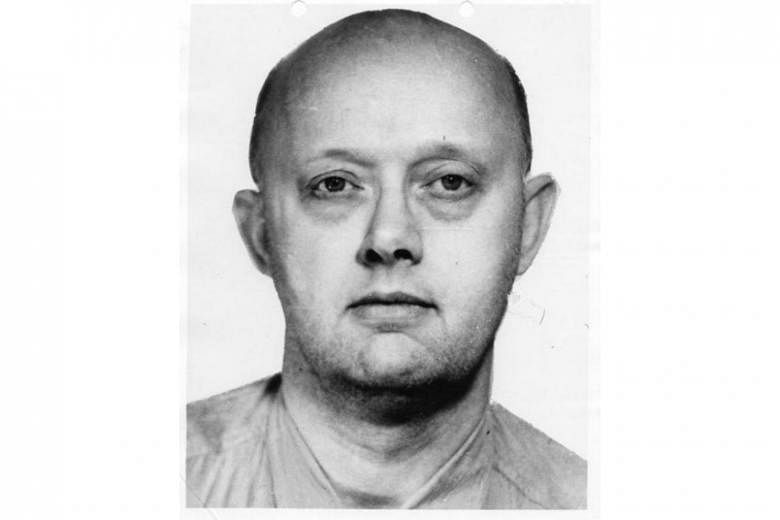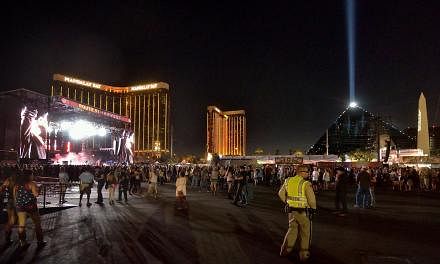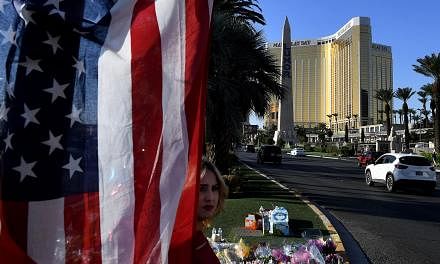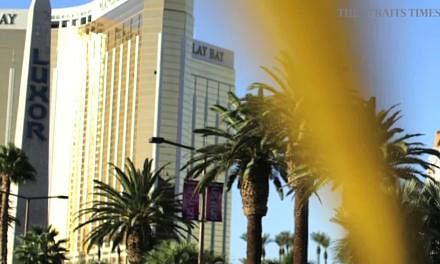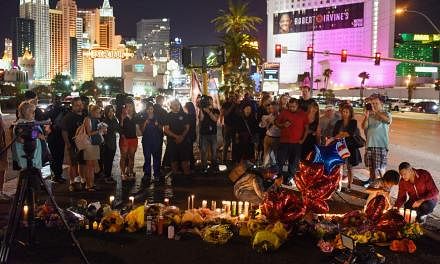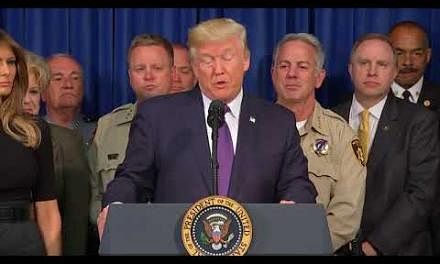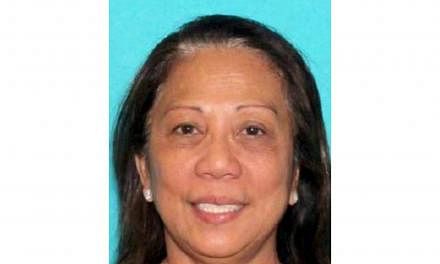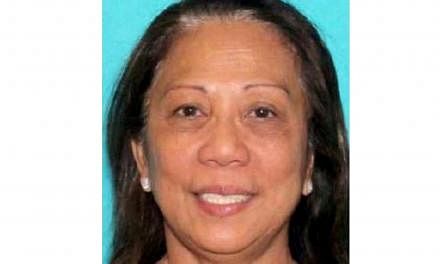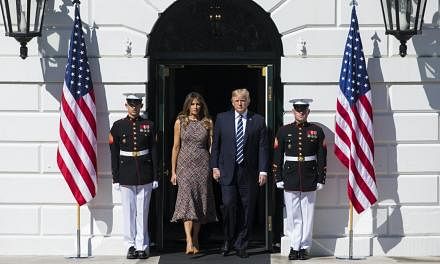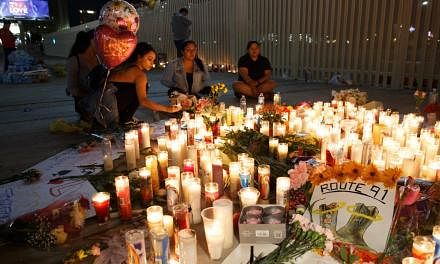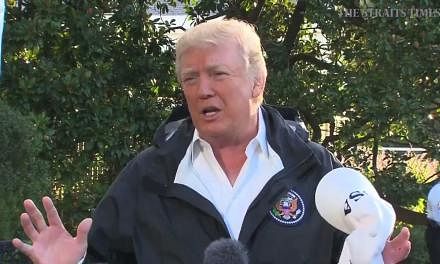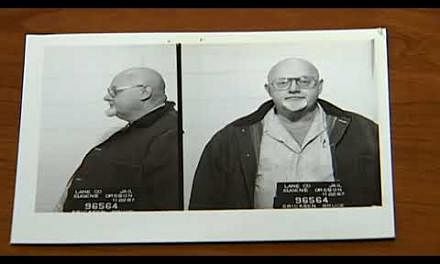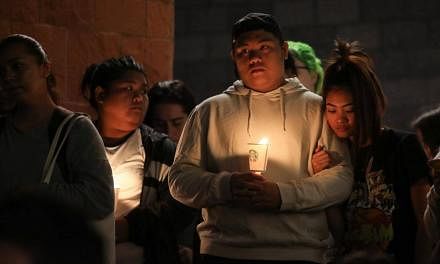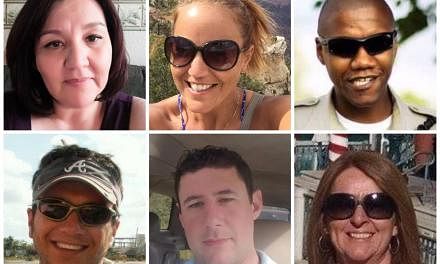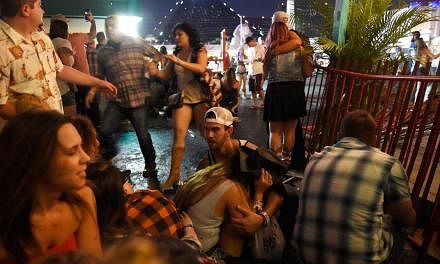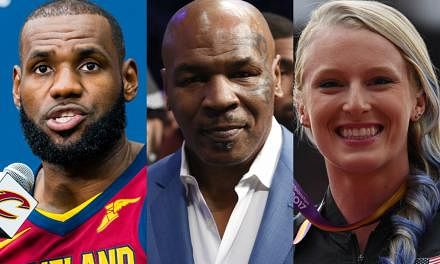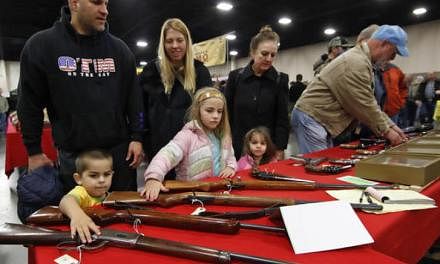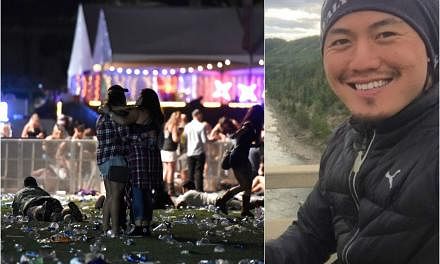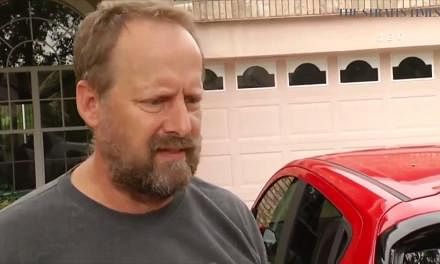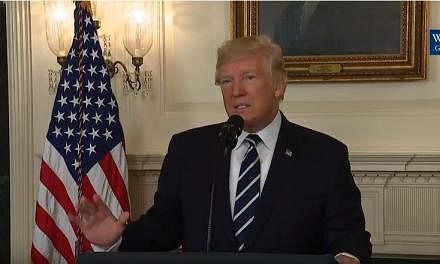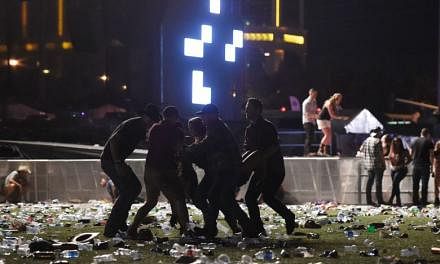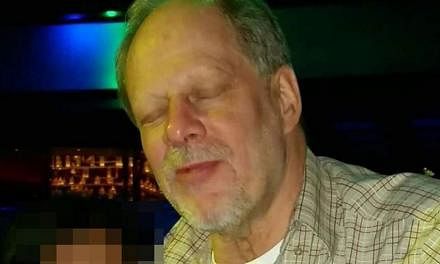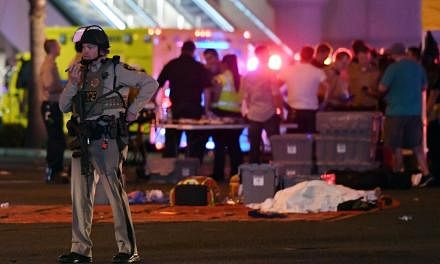LAS VEGAS (NYTIMES) - Las Vegas gunman Stephen Paddock's father lived a life of crime. In his early 30s, Benjamin Hoskins Paddock sold garbage disposals and worked as a repair man in Tucson, Arizona. But he also had another source of income: robbing banks.
During an 18-month span in 1959 and 1960, Paddock hit two branches of Valley National Bank in Phoenix, making off with US$25,000 (S$34,028), according to an article in The Arizona Republic in October 1960.
The authorities caught up to Paddock in Las Vegas. He was convicted in 1961 and sentenced to 20 years in federal prison, when his son was eight years old. He was sent to a federal prison in West Texas.
Another of Paddock's sons, Eric Paddock, said on Monday (Oct 2) that their father was largely absent from their lives. Eric Paddock said that he was born while his father was on the run and that their mother raised the children. A paid obituary for Benjamin Paddock lists only one son Patrick.
Paddock served less than half his sentence in Texas. In 1968, he escaped from La Tuna prison and made his way to San Francisco, where he robbed another bank that June, and eventually travelled up the coast and settled in Oregon.
He altered his appearance, shaving his head and growing a forked goatee, and changed his name to Bruce Werner Ericksen.
In 1969, the FBI placed him on its "Most Wanted" list, describing him as "diagnosed as psychopathic."
"He reportedly has suicidal tendencies and should be considered armed and very dangerous," the poster read, adding that he was an "avid bridge player."
In Oregon, Paddock played poker with friends in Eugene and opened the state's first permanent bingo parlor in the late 1970s, the Bingo Center in downtown Springfield. Through his lawyer, Paddock borrowed US$12,000 from Frederick van Deinse II to buy bingo equipment for the parlour.
"No one was privy to who he was previously," van Deinse said in an interview on Monday night.
He said Paddock, who was called Bingo Bruce, never spoke about his past - not about his family, how he came to Oregon or his life as a bank robber.
Van Deinse said he first learnt of Paddock's criminal history on the night of Sept 6, 1978, when he was running a bingo game in the parlour.
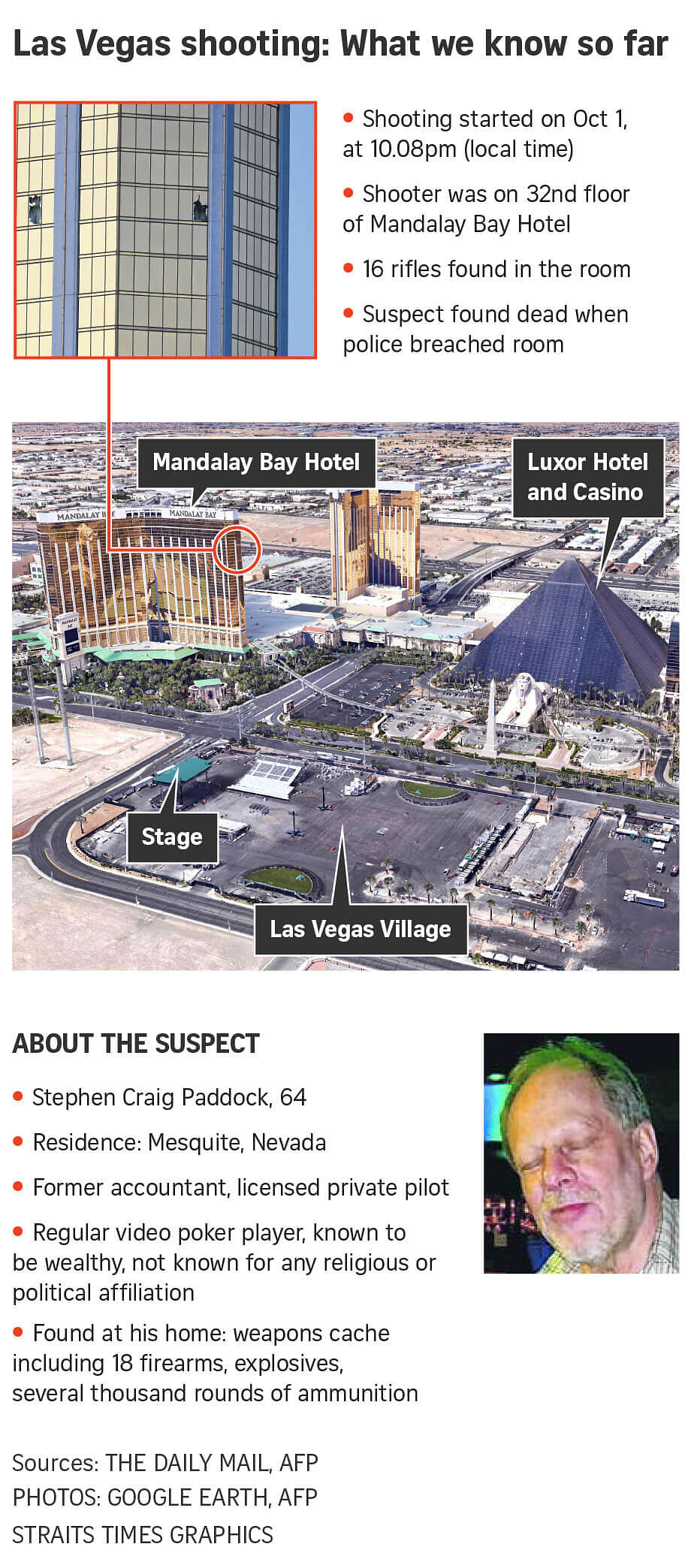
A group of men entered the hall and asked Paddock to help with an issue outside. It was a ruse, and when he went outside, federal agents arrested him.
"He was a con artist," van Deinse said. "I took it in the shorts. The money was gone."
He said Paddock corresponded from federal prison with friends he had made in Eugene. But once again, his stint in federal prison was short-lived, this time because he was released on parole after a year in custody, according to an article in The Eugene Register-Guard.
Paddock returned to Eugene, where he was welcomed by elected officials. He "did one hell of a lot for kids," a mayor told a federal parole board, according to the newspaper.
He also returned to bingo, opening a hall sponsored by a church, but ran into trouble again. State authorities charged him with racketeering in the 1980s. Paddock settled the civil charges and avoided jail after paying US$623,000, and he eventually left Oregon for Texas, where he lived until his death in 1998.
